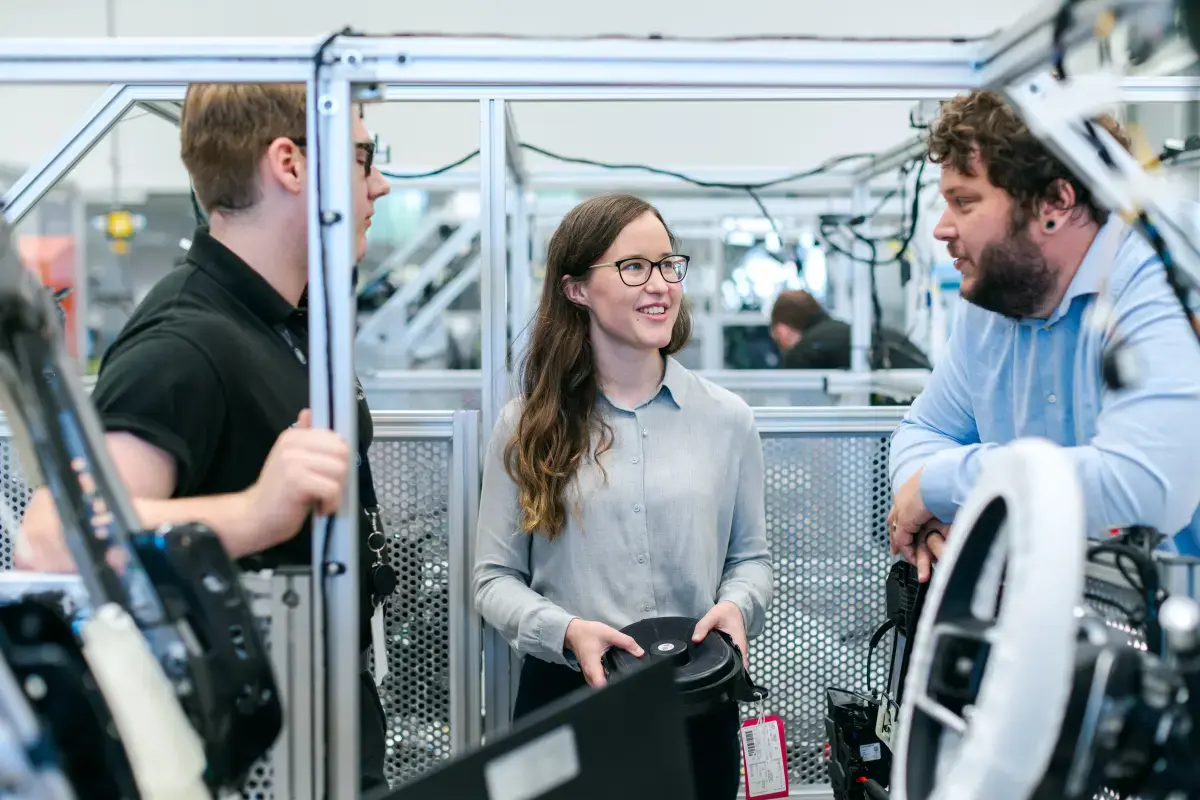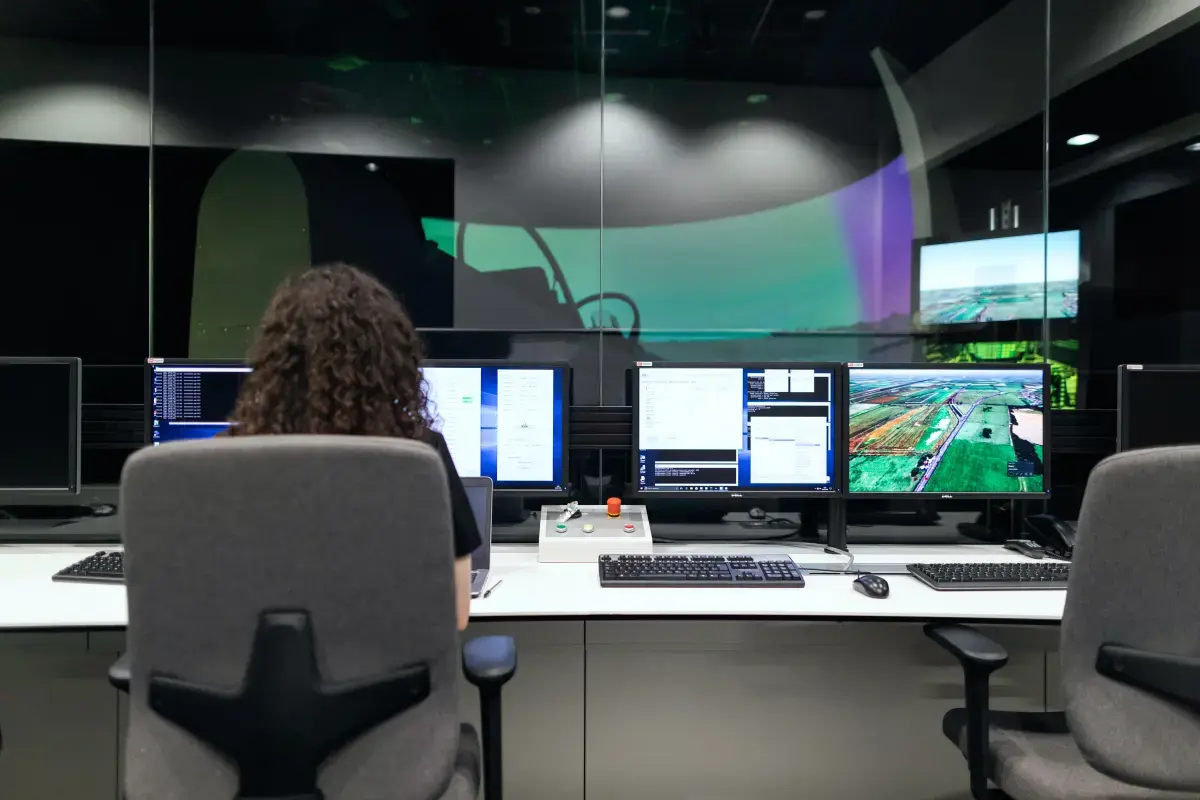
DevOps Engineer Job Description
What is a DevOps Engineer Professional?
A devops engineer is a computer software professional who specializes in the development and delivery of technological tools for facilitating collaboration between IT professionals responsible for developing and maintaining an organization’s operational infrastructure. DevOps engineers typically work with code repositories, continuous integration/delivery (CI/CD) pipelines, monitoring tools, and containerization platforms to enable rapid iterative deployments of new features or products while maintaining stability and quality. The term DevOps was originally coined by Patrick Debois as a collaborative approach to improving communication and integrating development (dev)and operations (ops). Since then, the role of DevOps engineer has evolved into one that bridges the gap between these traditionally siloed teams by automating processes and promoting collaboration throughout the entire software delivery life cycle—from code commit all the way to production deployment. In doing so, DevOps engineers help reduce friction between developers writing code and operations staff charged with deploying it. As a result, organizations are able to deliver high-quality software faster and more reliably. At its core, implementing effective DevOps requires changing both culture ("the way we do things around here") as well as tooling / process improvements("lets use this better mousetrap"). A successful introduction of automated Deployment & Release Management Approaches within an organization usually comes from dedicating enough time upfront planning which becomes even more important at scale - tasks such as strategy formulation for centralized logging & application performance managementor building self-service platform capabilities can be very brittle when initially rolled out if not done right core skills and experiences that all devops professionals need in order to be successful.

What does a DevOps Engineer Expert do?
Some of the most important skills for a devops professional include: Strong technical expertise: A devops professional needs to have strong technical expertise in both development and operations ( DevOps). They must be able to code or script , spin up new servers , work with configuration management tools , deploy applications , troubleshoot production issues etc . The term “DevOps” is a combination of the words “development” and operations.” It refers to a set of best practices that emphasize the collaboration and communication between these two essential groups within an organization. The goal of DevOps is to shorten the software development life cycle while delivering features, fixes, and updates frequently in order to provide value to customers quickly and efficiently. In order for an organization to be successful with DevOps, there must be a culture shift from traditional siloed departments where developers hand off code to operations teams who are responsible for deploying it into production. Instead, everyone needs to work together throughout the entire process so that each team can understand what their counterparts are working on and how it will impact them. This way issues can be identified early on before they cause major problems down the line. Furthermore, cross-functional teams should ideally have access to shared resources like code repositories, continuous integration/continuous delivery (CI/CD) pipelines, test environments, etc., so that they can all work together more effectively towards common goals. To achieve these objectives requires strong technical skills as well as good interpersonal abilities since dealing with people is such an important part of this type of role.. So what specific skills do devops need?

What are the Skills of a DevOps Engineer?
Technical Skills: Of course devops professionals need deep technical chops across multiple domains including networking , virtualization , storage , security , server administration , OSes (Linux & Windows), scripting languages (such as Python & Ruby ) . They also often possess expertise in popular automation tools like Puppet , Chef & Ansible . But being technically proficient isnt enough—devops pros also need other types of skills DevOps aims at coupling a tighter alignment between IT operations and businesses.

What makes an Expert DevOps Engineer?
DevOps engineers use their IT & infrastructure skills and expertise, in collaboration with their software, coding & programming abilities to automate repeatable and manual tasks to improve efficiences and Operational excellence within businesses.

What level of Experience & Qualifications are required to be a DevOps Engineer?
Industry Experience: • Minimum of 5 years’ experience in a DevOps engineering or related role. • Ability to effectively manage and troubleshoot complex, distributed systems across multiple platforms. Knowledge of scripting languages such as Bash, Python or Ruby is desirable. Training: • Knowledgeable about the development life cycle (SDLC) process, with an emphasis on automation. • Working knowledge of cloud-based technologies such as Amazon Web Services (AWS), Microsoft Azure, Google Cloud Platform etc., including serverless architectures and containerization solutions such as Docker/Kubernetes. Qualifications: Bachelor’s degree in Computer Science or related field preferred but not required depending upon the organization’s hiring requirements; knowledge of computer programming concepts, databases (MySQL), server architectures (Apache) & web services (RESTful API). Education: • Understanding of scripting languages like PowerShell, Bash Shell Scripting and Python for automation purposes is essential Good understanding of software development lifecycle process including Agile methodology; familiarity with version control tools like Git and Continuous Integration tools like Jenkins; good understanding of cloud computing platforms such as Amazon Web Services (AWS) & Microsoft Azure; excellent problem solving skills along with strong technical troubleshooting abilities

What is the Salary of a DevOps Engineer?
The salary expectations for a DevOps engineer vary depending on the level of experience. Junior: A junior-level DevOps engineer can expect to earn an average annual salary of between $60,000 and $80,000 per year. This range depends largely on location, as well as other factors such as education and certifications. Many employers also offer bonuses or stock options at this level in order to attract top talent. With experience and additional training/certifications, salaries can increase significantly over time. Mid-Level: An experienced mid-level DevOps engineer typically earns an average annual salary ranging from $90k to 120k per year based upon their skillset and expertise in the field. Additional benefits may be included with this position that could include medical coverage or company equity options which would further boost overall earnings potential for these engineers who have been working in the industry for 5+ years already.. Senior: Senior Level Devops Engineers are expected to command a higher base rate than those at lower levels due to their advanced knowledge of toolsets used within modern day cloud infrastructures & automated deployments processes across multiple environments (e.g., QA/Staging). On average they may receive anywhere from 140K - 170K annually depending on if there are extra incentives being offered such as signing bonus’s

What are the Working Conditions for a DevOps Engineer?
A DevOps Engineers general working conditions will vary based on their employer, but there are some common elements. Generally speaking, a DevOps Engineer is expected to have strong technical and communication skills in order to ensure the successful integration of development and operations processes. They must be able to effectively collaborate with other departments such as software engineering, system administration and IT infrastructure teams. DevOps Engineers typically work from an office or home environment where they can access necessary tools for collaboration including email, chat applications like Slack or Skype for Business, version control systems such as Git/SVN/CVS etc., issue tracking systems like Jira or Bugzilla etc., build automation tools (Jenkins), configuration management systems (Puppet / Chef) and virtualization technologies (Docker). In addition they should also possess good knowledge in scripting languages such as Python / Perl / Bash etc., web server platforms Apache Tomcat & IIS , security protocols TLS 1-2 & SLL 3 , database technology SQL Server & MongoDB . Depending upon the size of the organization that employs them; Devops engineers may need to travel between offices occasionally so it’s important that they maintain valid passport details if needed. As well being comfortable working in distributed teams across multiple sites globally which could include different time zones is essential too! Other duties performed by devops engineer involve setting up continuous delivery pipelines using CI/CD tooling e.g Jenkins Pipelines , automated testing frameworks e.g Selenium WebDriver test suites along with operating servers in cloud environments AWS EC2 instances .

What are the roles and responsibilities of a DevOps Engineer?
Being a devops enthusiast and contuinuous learning via improving automatable tasks
Leveraging devops into the security world vis devsecops principles
Understanding the difference and importance between the difference in secdevops, devops and devsecops
Being highly skilled in Coding & general Programming languages to automate repeatable tasks into BAU
Software Security skills to understand outcomes and provide secure solutions
Flexibility to code solutions based on unique business requirements
Scripting skills to program and deliver improvement initiatives to meet business needs
Infrastructure Knowledge in IT principles and good understanding of software solutions including: Microsoft Windows, Linux, Unix, Shell, Bash, SSH, CLI, Ansible, Puppet, Octopus Deploy
Expertise in software engineers and software programming languages & frameworks such as JSON, Node, Javascript, Git, bitbucket, Jenkins, Docker, Vagrant C
Strong knowledge and leadership in Cloud technologies and principles such as: Kubernetes, Mesos
Swarm, AWS, GCP (Google Cloud Platform), Azure
Passionate about Automation and the outcomes and saving this can deliver to business
Cloud Skills
CI/CD
Continuous improvement
Test/Testing

Where can I find DevOps Engineer jobs?
- Create a profile on gigexchange and promote your DevOps Engineer skills to advertise you are Open to New Work Opportunities
- Ensure your Resume (or CV), or online work profile is up to date and represents your skills and experience. Ensure your reputation reflects your ability & attitude.
- Apply for DevOps Engineer Jobs advertised on gigexchange.
- Practise DevOps Engineer interview techniques to ensure you represent your personality and ability succinctly and confidently.
- Accept the job offer if the salary meets your expectations and the employer mission and purpose reflects your core values.
Jobs
What are the best job boards for Platform Engineer jobs?

How can I hire DevOps Engineer staff online for my business?
The best job board for recruiting DevOps Engineer experts is gigexchange.com. Advertise full-time, part-time or contract jobs to find, hire & recruit trusted, experienced and talented DevOps Engineer candidates near you.

Are DevOps Engineer roles in demand in 2026?
DevOps Engineer experts are still in high demand in 2026. If you are an experienced DevOps Engineer or looking to train and become one. The job market is looking strong for DevOps Engineer jobs near me.